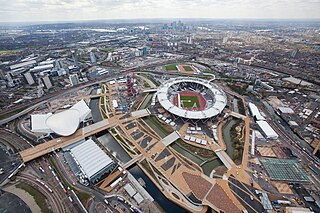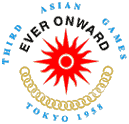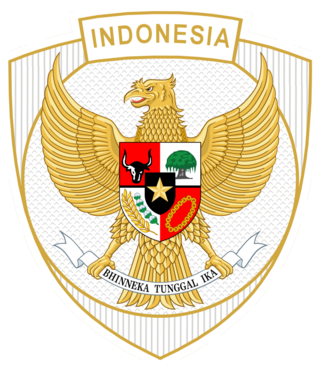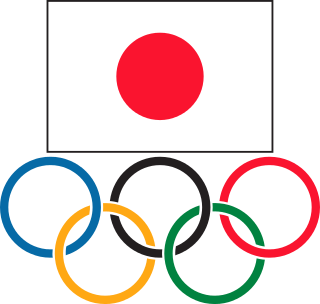
The Asian Games, also known as Asiad, is a continental multi-sport eventheld every fourth year among athletes from all over Asia. The Games were regulated by the Asian Games Federation (AGF) from the first Games in New Delhi, India in 1951, until the 1978 Games. Since the 1982 Games, they have been organized by the Olympic Council of Asia (OCA), after the breakup of the Asian Games Federation. The Games are recognized by the International Olympic Committee (IOC) and are described as the second largest multi-sport event after the Olympic Games.

A multi-sport event is an organized sporting event, often held over multiple days, featuring competition in many different sports among organized teams of athletes from (mostly) nation-states. The first major, modern, multi-sport event of international significance was the Olympic Games, first held in modern times in 1896 in Athens, Greece, and inspired by the Ancient Olympic Games, one of a number of such events held in antiquity. Most modern multi-sport events have the same basic structure. Games are held over the course of several days in and around a "host city", which changes for each competition. Countries send national teams to each competition, consisting of individual athletes and teams that compete in a wide variety of sports. Athletes or teams are awarded gold, silver or bronze medals for first, second and third place respectively. Each game is generally held every four years, though some are annual competitions.

The India national football team represents India in men's international football and is governed by the All India Football Federation.

The 2006 Asian Games, officially known as the XV Asiad, was an Asian multi-sport event held in Doha, Qatar from December 1 to 15, 2006, with 424 events in 39 sports featured in the games. Doha was the first city in its region and only the second in West Asia to host the games. The city will host the games again in 2030.

The 1958 Asian Games, officially the Third Asian Games and commonly known as Tokyo 1958, was a multi-sport event held in Tokyo, Japan, from 24 May to 1 June 1958. It was governed by the Asian Games Federation. A total of 1,820 athletes representing 20 Asian National Olympic Committees (NOCs) participated in the Games. The program featured competitions in 13 different sports encompassing 97 events, including four non-Olympic sports, judo, table tennis, tennis and volleyball. Four of these competition sports – field hockey, table tennis, tennis and volleyball – were introduced for the first time in the Asian Games.

The South Asian Games, formerly known as the South Asian Federation Games, is a quadrennial multi-sport event held among the athletes from South Asia. The governing body of these games is South Asia Olympic Council (SAOC), formed in 1983. Currently, the SAOC comprises 7 member countries, namely Bangladesh, Bhutan, India, Maldives, Nepal, Pakistan, and Sri Lanka. Afghanistan participated 4 times in the SAF Games since 2004, but left the SAOC after participating in the 2016 edition and joined CAOC.

The Indonesia national under-23 football team is considered to be the feeder team for the Indonesia national football team, represents Indonesia at football in the Olympic Games, Asian Games and Southeast Asian Games, as well as any other under-23 international football tournaments including the AFC U-23 Asian Cup. It is controlled by the Football Association of Indonesia.

The Philippines participated in the 2006 Asian Games held in Doha, Qatar; for the 15th straight time in the same number of stagings of the Games. The country did not participate in Men's and Women's Basketball for the first time due to the continuing suspension by International Basketball Federation.

Iran national under-23 football team, also known as Iran U-23 or Iran Olympic Team; represents Iran in international football competitions in Olympic Games, Asian Games and AFC U-22 Asian Cup, as well as any other under-23 international football tournaments. It is controlled by the Iran Football Federation.
An Athletics competition was contested at the 2006 Asian Games in Doha, Qatar from December 7 to December 12. Twenty-three events were contested for the men while 22 were on the slate for the women. Only the 3000 Meter Steeplechase was not contested for by the women. All track and field events were held at Khalifa International Stadium, and the racewalking and marathon took place at the Doha Corniche. A total of 530 athletes from 41 nations took part in the competition. Bhutan, Brunei, Indonesia and Myanmar were the only nations without a representative in the events.

India competed at the 2006 Asian Games held in Doha, Qatar. India ranked 8th with 10 gold medals.
Badminton has been one of the regular Asian Games sports since 1962 in Jakarta, Indonesia.

The South Korea national under-23 football team represents South Korea at football in the Olympic Games and Asian Games. It was founded when the Olympic football was changed to an under-23 competition. It also can be managed as under-21 or under-22 team if necessary.
The FESPIC Games or the Far East and South Pacific Games for the Disabled, was a multi-sport event in Asia and the South Pacific region which is considered to be a precursor to the Asian Para Games, as two of its edition games in 1999 (7th) and 2002 (8th) were held parallel to the 1998 Asian Games and the 2002 Asian Games.

The Asian Para Games, also known as Para Asiad, is a multi-sport event regulated by the Asian Paralympic Committee that's held every four years after every Asian Games for athletes with physical disabilities. Both events had adopted the strategy used by the Olympic and Paralympic Games of having both games in the same city. However, the exclusion of Asian Para Games from Asian Games host city contract meant that both events ran independently of each other. The Games are recognized by the International Paralympic Committee (IPC) and are described as the second largest multi-sport event after the Paralympic Games.

The India men's national kabaddi team represents India in international men's kabaddi competitions. The team is by far the most successful national kabaddi side of any country, winning gold medals at the Asian Games in 1990, 1994, 1998, 2002, 2006, 2010, 2014 and 2022, as well as winning all three Kabaddi World Cup events to date. Pawan Sehrawat is the current captain of the team since 2022.

The India national under-23 football team represents India in international under-23 football and is controlled by the All India Football Federation (AIFF). A member of the Asian Football Confederation (AFC), the team is eligible to compete in the Summer Olympic Games, the AFC U-23 Asian Cup, and the Asian Games, subject to qualification.

The Japan national under-23 football team is a national association football youth team of Japan and is controlled by the Japan Football Association. The team won the gold medal at the 2010 Asian Games and were champions in the 2016 AFC U-23 Championship. Since 1992, it was decided that teams targeting athletes under the age of 23 will participate in the Olympics. Therefore, the name changes to Japan national under-22 football team the year before the Olympics and Japan national under-21 football team two years prior. The exception to this was the 2020 Tokyo Olympics, which was postponed one year, so in 2021, the team was called the Japan national under-24 football team.

North Korea participated at the 2006 Asian Games held in Doha, Qatar from 1 to 15 December 2006. North Korea ranked 16th in the medal table with 6 gold medals.
Jordan national under-23 football team represents Jordan in international football competitions in Olympic Games and Asian Games. It is controlled by the Jordan Football Association. Jordan Olympic Team won the bronze medal in the 2013 AFC U-22 Championship in Oman.














